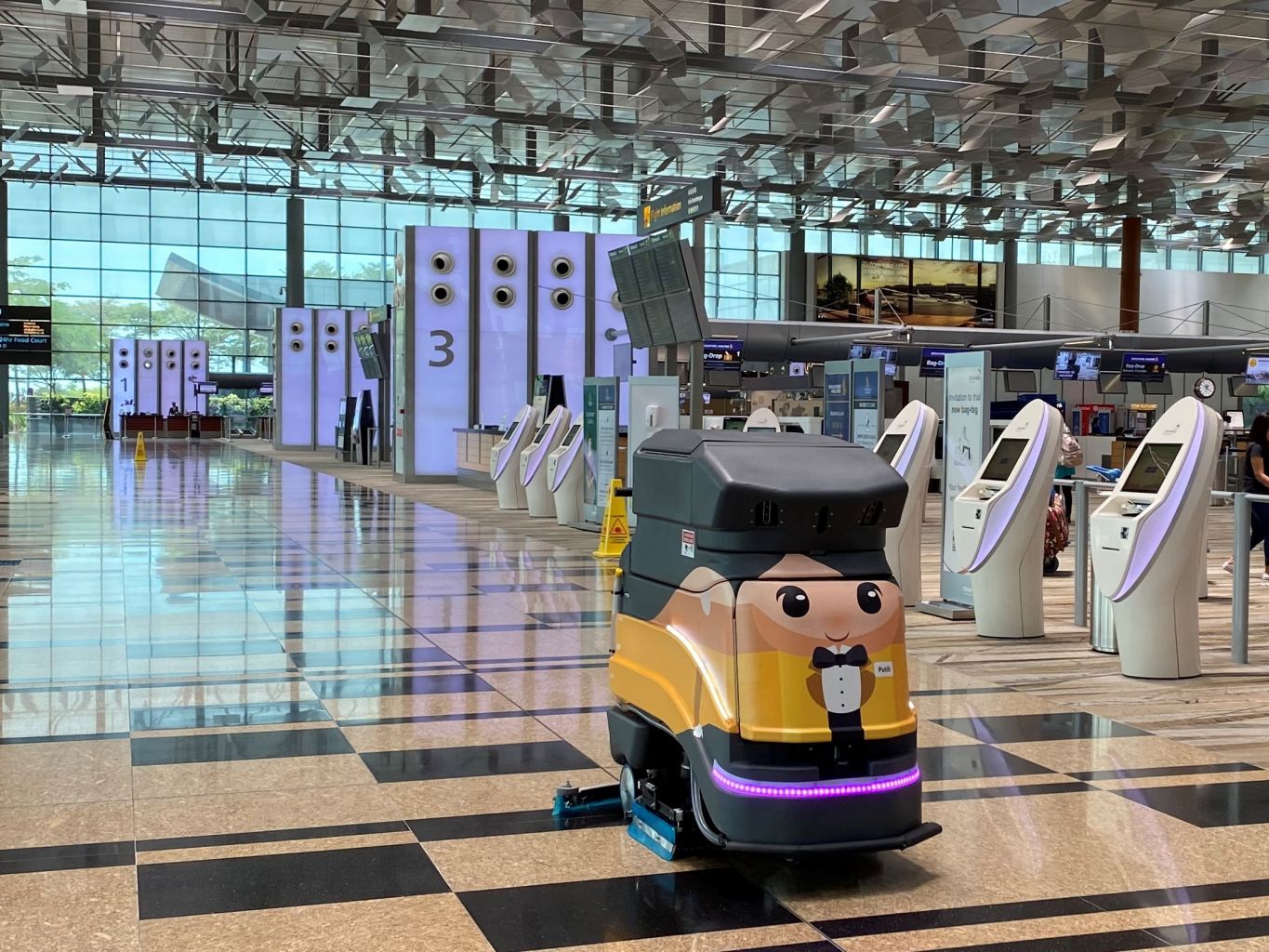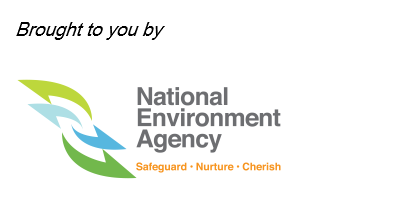BRANDED CONTENT
Cleaning, transformed through technology
By joining NEA’s INCUBATE Partnership Programme, organisations can help to provide better environmental services for Singapore

An autonomous floor scrubbing robot helping to keep the premises of Changi Airport spotless. PHOTO: CHANGI AIRPORT GROUP
At Changi Airport, planes are not the only things that are taking flight. Over the past few years, the airport has been trialling solutions that could revolutionise Singapore's environmental services (ES) industry, from cleaning to pest and waste management.
Since 2015, it has tested and deployed autonomous hard floor scrubbers that now clean about 80 per cent of its hard floors, allowing their cleaning contractor(s) to focus on the remaining areas that are hard to reach - such as edges next to walls, fixtures and furniture - and carry out spot-cleaning to remove stubborn stains such as dried coffee or tea stains.
By taking part in the National Environment Agency's (NEA) INnovating and CUrating Better Automation and Technologies for Environmental Services (INCUBATE) Partnership Programme, it has also brought its environmental management to the next level.
Innovation for growth
Launched in 2017, the INCUBATE Partnership Programme is a key initiative by NEA to transform the ES industry. It aims to drive innovation, promote greater adoption of technology, improve skills, raise productivity and allow the firms in the ES industry to better seize opportunities overseas.
Under the programme, NEA collaborates with partners to identify their ES challenges, co-evaluate solutions from joint grant calls, trial technology solutions and share best practices. It has brought 21 partners on board and completed 46 trials in transport and community hubs, commercial properties and integrated resorts.
Mr Gan Heng, Changi Airport Group's (CAG) general manager of facilities management, says that through the programme with NEA, CAG was introduced to a more holistic and digital approach to rodent management.
"Conventionally, pest control operators look for tell-tale signs like paw prints and droppings at active sites before deciding where to place baits," he explains.
"By working with the vendor to install rodent monitoring sensors, we were able to review and improve trapping strategies, fortify hot spots and implement other pre-emptive measures to eliminate the presence of these pests."
The organisation has also switched to smart compactor litter bins for "gatehold" rooms, where passengers wait before boarding flights. These bins alert cleaners when they are almost full, optimising the process of cleaning and waste management.

"With these bins, there is no need to check and clear them after every flight. The clearing of these bins became on-demand, and the frequency of clearing these bins was reduced by up to 50 per cent, achieving manpower productivity," says Mr Gan.
He notes that the ES industry - especially cleaning services - is manpower-reliant. CAG has been actively looking out for new and innovative measures such as redesigning work processes and using technology/automation to reduce its reliance on manpower
"By tapping into the network of industry solutions providers via the INCUBATE programme, we were able to accelerate our transformation through work process redesign, increased technology adoption for environmental solutions, and move to outcome-based cleaning of some of our terminals," Mr Gan adds.
Getting future-ready
To prepare workers for a technology-empowered future, CAG has partnered its cleaning contractor(s) and suppliers to train their cleaning staff to operate the autonomous hard floor scrubbers, diagnose basic faults and reset them when necessary.
It also joined forces with the Infocomm Media Development Authority (IMDA) and NEA, through the Seniors Go Digital initiative, to equip senior cleaning staff with basic digital knowledge and prepare them for the increasing use of digital tools in their line of work.
Mr Dalson Chung, director of NEA's Industry Development and Promotion Division, notes that demand for ES has risen in the wake of the Covid-19 pandemic.
"In a post-Covid-19 world, Singapore's public health defences need to be bolstered, ready to contain emerging outbreaks as and when they come. We can expect demand for more effective and efficient cleaning methods to grow, and there will be impetus to improve the technical know-how of workers and standards of cleaning."
He also highlighted that INCUBATE partners can help to build confidence in technology and service providers' innovations by allowing these to be tested in their premises.
"When innovations are successful, it benefits not only the service and technology providers, but also the service buyers and the workers whose jobs will be upskilled," adds Mr Chung.
"We hope more partners will join us to work together to create stronger businesses and better jobs for the ES workforce and raise productivity across the entire industry."
Visit this website to find out more about NEA's INCUBATE Partnership Programme.



